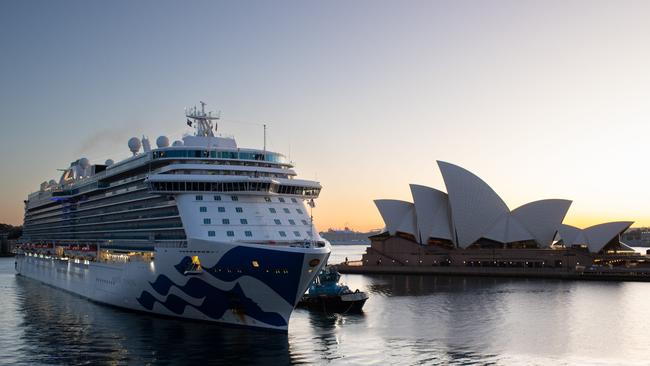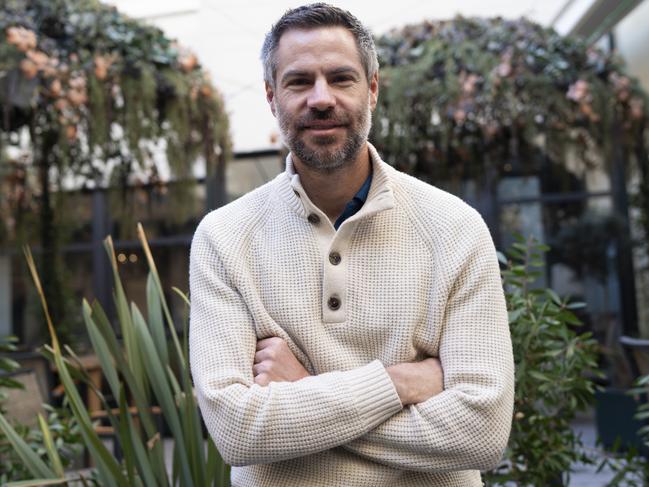James Morrow: No time for concepts of distance, inequality
The phenomenon whereby the privileged left demands the rest of the world bow to its tastes is so screamingly loud now that it is impossible to ignore, writes James Morrow.

NSW
Don't miss out on the headlines from NSW. Followed categories will be added to My News.
Sometimes the mask slips. Literally.
The other day, in the face of rising Covid cases, former NSW premier Bob Carr decided he’d had enough and was going to offer his solution to a grateful Sydney.
“The upsurge in cases was predictable when Perrottet lifted mask policy. Waiters should be masked,” he tweeted.
“Without it, busy restaurants have become superspreader festivals. And public transport. No loss of freedom here. Sensible policy.”
Well, tell that to the guy who has to work an eight-hour shift explaining the day’s specials through a face rag.
As an example of the weird sort of progressive puritanism that latched on to Covid as a way to tell other people how to live their lives, it’s a practically museum worthy tweet.
He’s still happy to go out for “organic steel cut oats” (one of Mr Carr’s favourite foods, according to his 2014 diaries, in which he also compared business class travel to being aboard a trans-Atlantic slave ship).

Just, please, make sure he is kept safe from the filthy, disease ridden help.
There is, to be sure, an awful lot of this sort of behaviour going around and it’s not just about Covid.
The phenomenon whereby the privileged left demands the rest of the world bow to its tastes (while going on doing its own thing unawares) is so screamingly loud now that it is impossible to ignore.
Author Margot Saville wrote on the weekend bemoaning the fact that Covid-infected cruise ship passengers were allowed to go home after disembarking – just like Covid-infected business class flyers who’ve just gotten off one of Bob Carr’s airborne slave ships are also allowed out on the streets.
But perhaps that’s different because, as she stated: “The cheapest fare paid by the 3300 passengers on the Princess Pandemic was about $150 per day, which partly explains why cruising is so popular.”
Popular, it hardly needs stating, is likely not meant as a good thing in this context.
It is also worth noting that cruising has always elicited horror among a certain sort of Australian intellectual.
In 2005, playwright David Williamson complained of winning a cruise in an auction and discovering that there were lots and lots of children and that “the adults didn’t seem to be discussing Proust or George Eliot”.
The horror.
SAVING THE CLIMATE ONE JET AT A TIME
But these Australian examples are nothing compared to what went on over in Egypt at COP27, the great environmental wheeze that saw the great and the good come together to determine whether we’ll be allowed to turn our air cons on next year.
There, according to Egyptian authorities, huge numbers of delegates arrived on private jets, perhaps as many as 400 of them by one count.
As the saying goes, we should all start taking the climate crisis seriously when those who tell us to take it seriously do.
Otherwise, whether it is minor complaints about unmasked waiters or much bigger and more consequential attempts to inflict European and Californian-style energy disasters on us, the effects will be the same.
As Michael Shellenberger, author of Apocalypse Never: Why Environmental Alarmism Hurts Us All, recently pointed out: “UN climate talks aren’t about the rich helping the poor. They’re about bribing corrupt leaders in poor nations to leave their fossil fuels for rich nations.”
“The reason even the most sincere greens consume large quantities of energy is simple: living in wealthy nations and doing things that people in wealthy nations do, from driving and flying to eating and living in a home, requires significant quantities of energy,” he added.
‘FANATICAL ELITES’
According to Mr Shellenberger, “fanatical elites” are not pushing the climate agenda because they want to save the planet but because “they are against cheap energy and industrial capitalism because they lift up ordinary people and close the gap with the elites, who want distance and inequality.”

This should ring alarm bells with Australians who have, at least since the Howard government, listened to their betters in some quarters of politics and the press slam their aspirational pursuits and goals as being nothing more than a crass materialism built on “McMansions” and “flat-screen TVs”.
Because from Covid to climate there is a growing pattern that sees the well off being allowed to improve their lot while those in physical work and on lower wages get dudded.
Or as Mr Shellenberger put it, “distance and inequality”.
Just as the Zoom classes saw the values of their assets increase during the pandemic (thanks, Josh Frydenberg) they will also be much better off when the time comes to absorb next year’s expected 56 per cent power price hikes.
And that’s before we talk about the $500 billion CSIRO says it will take to rewire the nation, the higher cost of food that will come about from various anti-emissions pledges and whatever the government eventually commits us to in terms of assuaging our climate guilt by handing money over to corrupt dictators in the name of “reparations”.
Originally published as James Morrow: No time for concepts of distance, inequality



